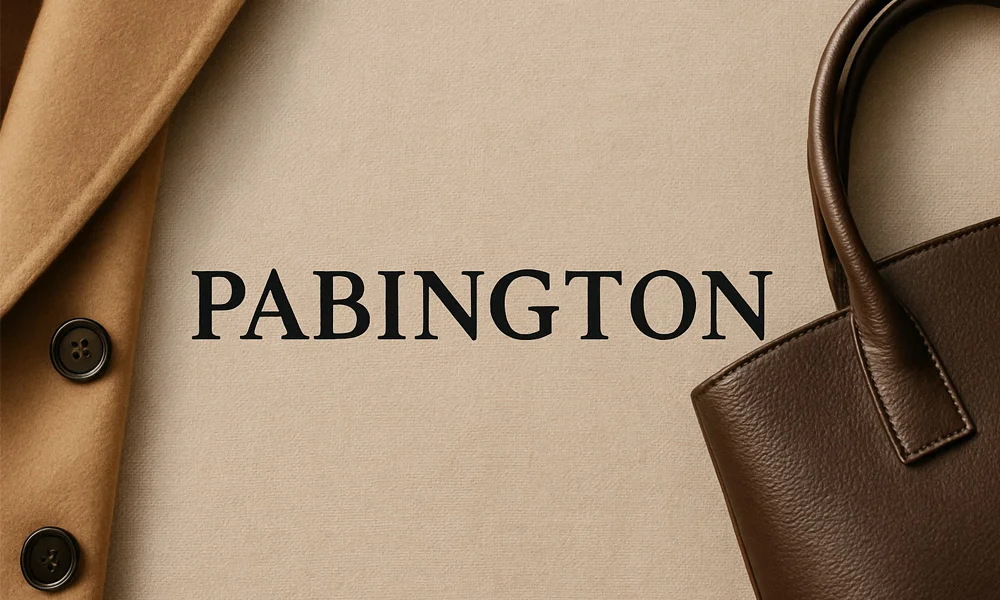Pabington: History, Significance, and Modern Relevance
Some names capture curiosity the moment they are heard. Pabington is one such word. Its sound feels traditional, almost like a place name, yet it also carries a contemporary ring that sparks curiosity in digital searches. While not widely known, the word Pabington is beginning to appear in discussions around history, surnames, branding, and even literature.
This article explores the roots of Pabington, its possible interpretations, and why it has become a subject of interest.
The Possible Origins of Pabington
The name Pabington has the hallmarks of a toponymic surname—a name derived from a geographical location. English surnames often followed this pattern, where individuals were named after towns, villages, or estates.
-
Linguistic Roots – The suffix “-ington” appears in many English place names, usually signifying “the settlement of” or “the town belonging to.” Examples include Kensington or Islington. This suggests that Pabington may have once referred to a settlement or landholding.
-
Family Connections – It’s possible that Pabington originated as a surname tied to a landowning family or estate. Over time, such names often evolved into identifiers for both families and places.
-
Historical Resonance – Names with this construction typically date back to medieval England, often tied to early feudal or agricultural communities.
Even if Pabington does not correspond to a widely recognized modern location, the structure gives it the weight of heritage and tradition.
Pabington as a Surname
Beyond geography, Pabington could exist as a rare surname. Surnames of this style typically carry associations with lineage and heritage, and people tracing family histories often uncover such names in genealogical records.
Genealogy enthusiasts may encounter Pabington in old documents, parish records, or migration histories. If tied to a family line, the name could have traveled across continents, adapting in spelling or pronunciation over time.
Modern Uses of Pabington
While the roots of Pabington may be historical, its applications today can extend far beyond. In the modern context, Pabington could be:
-
A Fictional Place Name – Authors and screenwriters often invent English-style village names for novels, films, or games. Pabington fits naturally into this tradition.
-
A Brand or Company Identity – Unique names like Pabington stand out for luxury products, boutique businesses, or creative ventures.
-
A Cultural Reference – It may appear in digital spaces, forums, or projects where creators are searching for authentic-sounding names.
The adaptability of Pabington makes it appealing to both historians and innovators alike.
Why People Search for Pabington
Several factors explain why Pabington draws attention online:
-
Curiosity about its history – People encounter it in old texts or records and want to know its origin.
-
Brand exploration – Entrepreneurs search for unique, unused names with a classic sound.
-
Literary interest – Writers or gamers may adopt it as a fictional setting.
-
Family connections – Descendants researching genealogies may trace ties to the Pabington name.
In every case, the interest reflects the name’s rarity and distinctive sound.
Cultural Significance of English-Style Names
Names like Pabington carry weight because they connect to heritage and tradition. Even when fictional, such names evoke images of countryside estates, historic villages, and narratives rooted in history.
-
In Literature – Think of how names like Darlington or Worthington create instant associations with setting and character. Pabington fits this mold.
-
In Branding – Luxury brands often adopt heritage-style names to convey timelessness and prestige.
-
In Personal Identity – Rare surnames or unique place names carry a sense of exclusivity and pride.
Pabington sits comfortably within this tradition, bridging history and modern creativity.
FAQ
What does Pabington mean?
Pabington most likely originates as an English-style place name or surname, with “-ington” indicating a settlement or estate.
Is Pabington a real place?
It does not appear on modern maps, but it could refer to an old settlement, estate, or fictional village.
Can Pabington be a surname?
Yes, it fits the pattern of rare English surnames and may appear in genealogical records.
Why is Pabington used today?
Writers, brands, and individuals are drawn to its heritage-style sound and uniqueness.
What makes Pabington unique?
Its rarity, heritage resonance, and adaptability make it stand out among modern names.
Conclusion
The word Pabington reflects the power of names to connect the past with the present. Whether tied to history, adopted as a surname, or repurposed in literature and branding, it carries the charm of heritage while offering modern flexibility.
Its growing digital presence shows that people value names that feel rooted yet fresh. In that sense, Pabington is more than just a name—it is a reminder of how history, culture, and creativity intersect in the words we use and the identities we create.
